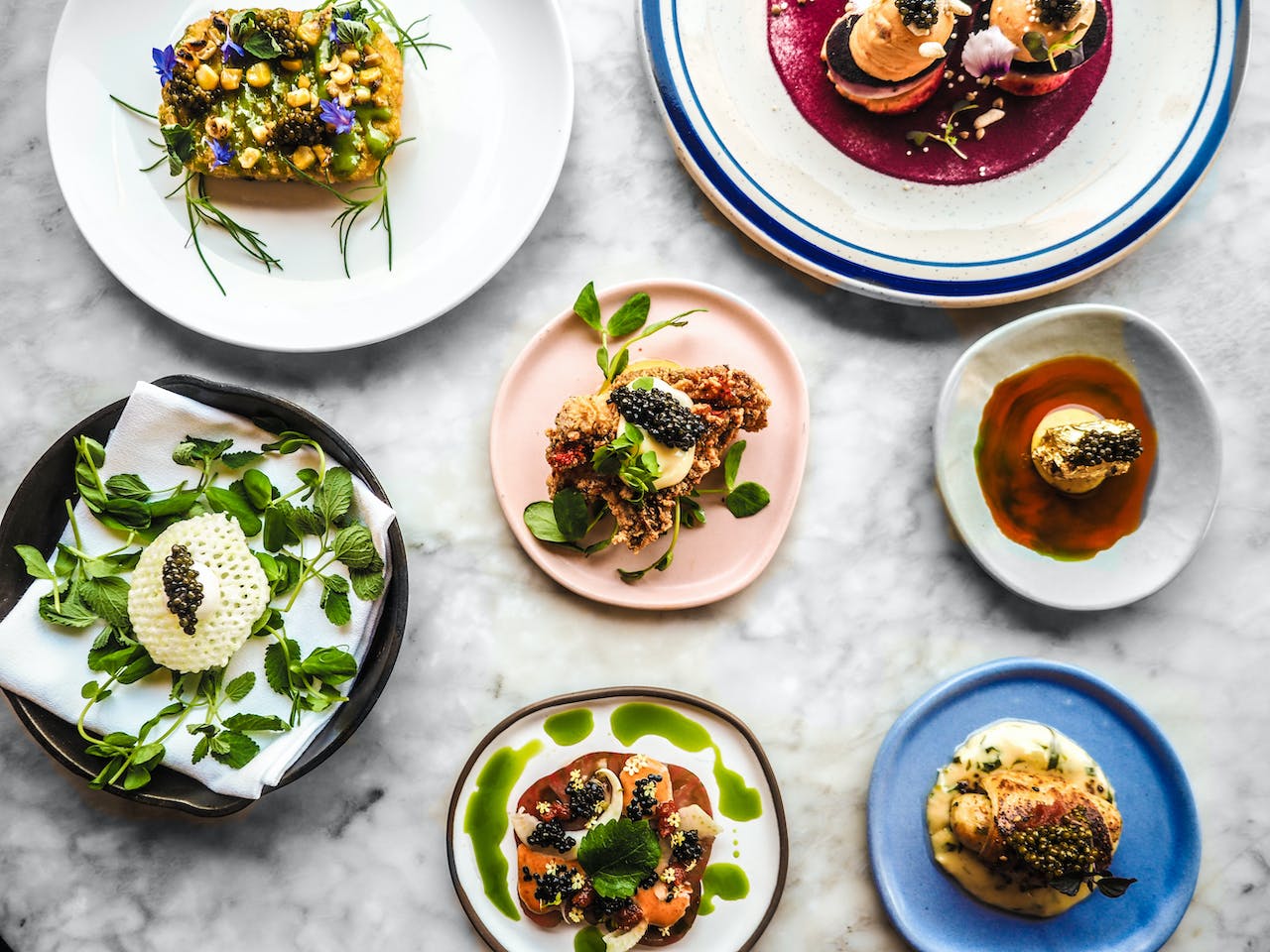10 Ways To Be A More Sustainable Cook

Even the way we tidy up can be more sustainable, if you think about it!
10 Habits For More Conscious Cooking

1. Keep It Vegan
My first tip for being a more sustainable cook is going vegan. It should be evident to everyone by now that a vegan diet is undoubtedly better for the planet, better for your health, and of course, way better for animals! There are plenty of great recipes you can make: from vegan burgers, tacos and pizza to even vegan sushi rolls. So there’s really no excuse not to go plant based! Or at least make one meal a day vegan, then increase it to one full day…you’ll see, it’s easier than you think!
2. Think About The Carbon Footprint
As well as preparing vegan food, preparing locally sourced food will help you be a more sustainable cook. Mainly because it will seriously reduce your carbon footprint. But it will also be better for your health! That’s because the shorter the route produce has to land on your table, the more nutrients it retains.
The best thing you could do to be a mindful chef? Grow your own! Even if you have zero garden space, it’s not hard to grow herbs, tomatoes and lettuce in pots indoors.
3. Don’t Forget To Compost
Speaking of produce, keep it mind it’s wonderful for making compost! Not got room in the garden for a bin? No worries! Just keep a small compost bin on your kitchen countertop. As you cook, collect food scraps (like fruit and vegetable peels and even eggshells) and toss them into your bin instead of the trash. These scraps can be easily composted to create nutrient-rich soil for your garden or houseplants. Learn how here.
4. Use Everything Up
5. Try To Reduce Water Waste
Cooking often involves using water, and there are ways to minimise water waste. For example, washing dishes by hand (instead of using a dishwasher) uses way less water. If, that is, you fill up the sink instead of keep the water running. You can also use a bowl to wash vegetables and then reuse that water for watering plants, for instance.
6. Use The Lid
When cooking on the stovetop, remember to be more sustainable cook there, too. It’s easy: just cover your pots and pans with lids. This saves loads of energy by trapping heat. It also reduces cooking time, yay!
7. Keep An Eye On Energy
Speaking of energy reductions, be sure you’re keeping an eye on what you’re cooking. Don’t just put the stove on high and boil water for 10 mins before you realise, yes, I can put the pasta in the water now! Be mindful of what’s going on top of the stove.
In addition, be sure to use the smallest burner that fits your pot. Why? Well, according to the American Council for an Energy-Efficient Economy, putting a six-inch pan on an eight-inch burner will waste over 40 percent of the heat produced by the burner. Yipes!
8. Buy Natural Stuff For The Kitchen
Paper towels? No thanks! Use reusable, washable cloths instead. You’ll save tons of paper over time! As for dish soap, make sure it’s fully biological and eco friendly. Instead of plastic sponges, consider buying loofahs or natural bristle brushes to wash your dishes. Also, avoid plastic wrap and buy coated paper or waxed paper wrap instead.
9. Save It
Got leftovers? To be a more sustainable cook, be sure to freeze them, or pop them in the fridge for tomorrow. Save them in glass ‘tupperware’ instead of plastic containers to avoid toxins from entering your food. Think there’s just no way you’ll be able to eat all that stuff, even if you put it in the freezer? Compost it, or even consider whether the dog can eat it.
10. Think About Going Raw
As with going vegan, going raw is great for your health, animals and the planet. And it’s probably not what you think! For example, a food is considered to be ‘raw’ if it has never been:
- heated over 104–118°F (40–48°C)
- refined
- pasteurised
- treated with pesticides
- otherwise processed in any way
So yes, raw food CAN be warm. Even hot! So it’s ok for winter. What this ultimately means is: less energy is used for cooking, refining and treating food. Which means a raw food diet is another great way to shift towards more conscious cooking!
Get some great raw recipe ideas here.
What have you done to become a more sustainable cook? Let us know in the comments, below!
- The Dangers Of Having Smart Meters At Home - July 2, 2025
- How To Keep Your Dog Or Cat Hydrated This Summer - June 12, 2025
- Are Hartdene Barns The UK’s Most Eco Friendly Homes? - June 6, 2025









